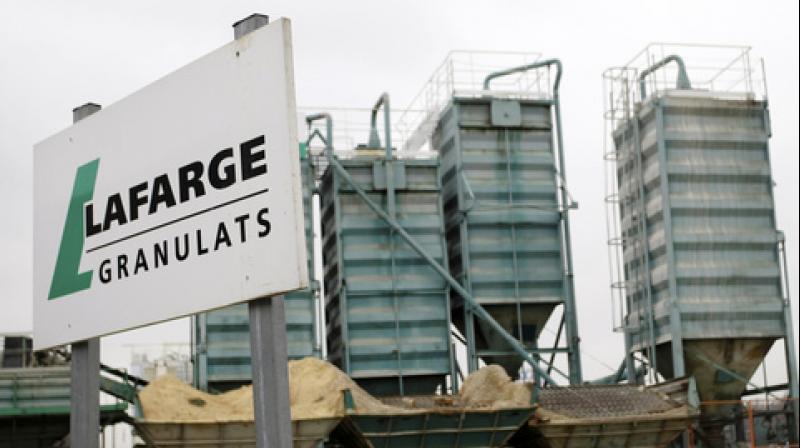Cement giant admits 'unacceptable' practices at Syria plant

Paris: Cement maker LafargeHolcim admitted on Thursday it had resorted to "unacceptable practices" to continue operations at one of its now-closed factories in Syria.
The admission comes after sources close to the case told AFP in January that the French government had filed a legal complaint against Lafarge for buying oil in Syria to power the Jalabiya factory, in violation of sanctions.
The factory closed down before French cement maker Lafarge merged with Switzerland's Holcim in 2015.
"At times, different armed factions controlled or sought to control the areas around the plant," LafargeHolcim said in a statement following an internal investigation.
"It appears from the investigation that the local company provided funds to third parties to work out arrangements with a number of these armed groups, including sanctioned parties, in order to maintain operations and ensure safe passage of employees and supplies to and from the plant," it said.
"In hindsight, the measures required to continue operations at the plant were unacceptable." The alleged dealings took place during 2013 when "the deterioration of the political situation in Syria posed very difficult challenges for the security and operations of the plant and its employees", LafargeHolcim said.
The plant, located in northern Syria some 150 kilometres (95 miles) northeast of Aleppo, was finally evacuated in 2014.
Lafarge is suspected of sourcing oil locally to operate the factory in defiance of a 2012 EU ban on purchases of Syrian oil as part of a sanctions package targeting the regime of Syrian President Bashar al-Assad.
The complaint, which was filed in late September 2016, followed a report in French daily Le Monde saying Lafarge entered into deals with armed groups in Syria, including the Islamic State group, to protect its business interests there, the sources said.
Lafarge bought the Jalabiya cement works in 2007 and the plant went into operation in 2011.
Separately, LafargeHolcim on Thursday reported a net profit of 1.9 billion Swiss francs ($1.9 billion, 1.8 billion euros) for 2016, nearly double the 970 million francs it made the previous year.
The group generated 638 million francs in synergy savings from the Holcim-Lafarge merger, more than expected, it said in a statement released in Switzerland.
Sales dropped because of weaker sales in Latin America, the Middle East and Africa, but the group still managed to cut debt by 2.5 billion francs to 14.7 billion.
LafargeHolcim said demand for its building materials was expected to pick up in 2017, mostly thanks to markets in the US, India and Nigeria.
The group also said it was planning to buy back up to one billion francs worth of its own shares this year and next.
LafargeHolcim shares rose in response to the report, trading 2.7 percent higher in early business on the Swiss stock exchange.

